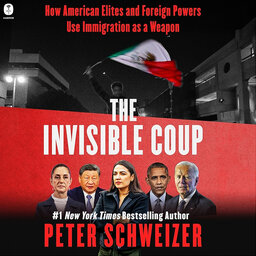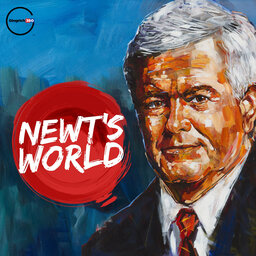Episode 759: Who is the Real Tim Walz?
Newt talks with Paul Gazelka, former Minnesota Senate Majority Leader, about his new book "Behind the Veil: A Stand Against Governor Tim Walz." Their discussion focuses on Tim Walz's political career, his performance during the vice-presidential debate, and his leadership abilities. Gazelka criticizes Governor Walz's handling of crises such as the George Floyd riots and the COVID-19 pandemic, describing him as indecisive and untrustworthy. They also touch on Walz's controversial policies, including tax increases, his extreme left agenda, and mismanagement of Minnesota state funds. Gazelka expresses concern over Walz's potential influence at the national level in a Harris administration.
In 1 playlist(s)
Newt's World
Join former House Speaker, professor, historian, and futurist Newt Gingrich as he shares his lifetim…Social links
Follow podcast
Recent clips

Episode 948: ‘Moneyball’ for Politics
30:34

Episode 947: Will AI Take My Job
28:22

Episode 946: Peter Schweizer on “The Invisible Coup”
34:50
 Newt's World
Newt's World